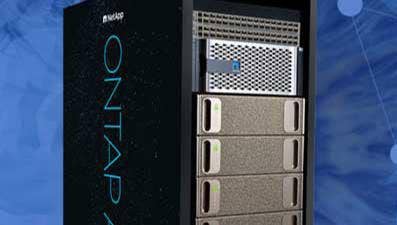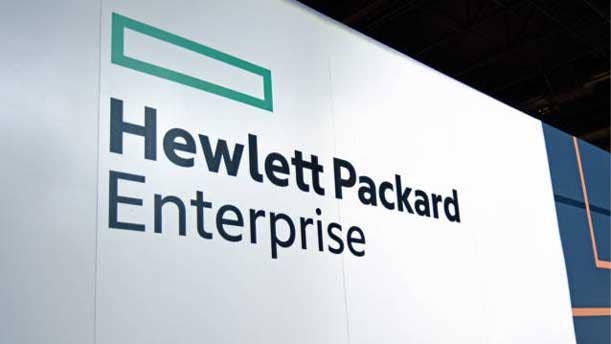5 Companies That Came To Win This Week

The Week Ending Aug. 17
Topping this week's roundup of companies that came to win is Cisco Systems, which reported its biggest sales quarter ever, driven by strong recurring revenue results.
Also making the list this week are NetApp, which is planning to launch the VMware Private Cloud Reference Architecture for its HCI offerings; Hewlett Packard Enterprise, which is set to unleash its ultra-powerful new Eagle supercomputer; Advantix Solutions Group, which has acquired the managed mobility business from fellow solution provider TeraNova Consulting Group; and IGEL, which reported a major sales lift from pairing its Linux-based operating system with VMware Workspace ONE.
Not everyone in the IT industry was making smart moves this week, of course. For a rundown of companies that were unfortunate, unsuccessful or just didn't make good decisions, check out this week's Five Companies That Had A Rough Week roundup.

Recurring Revenue Drives Cisco's Biggest Quarterly Sales Ever
Fresh from reporting Cisco Systems' biggest sales quarter ever, Chairman and CEO Chuck Robbins (pictured) says the strength of the networking giant's channel partners accounts for the lion's share of the company's success in its transition to a software-focused, recurring revenue-based strategy. About a third of Cisco's total revenue is now realized on a recurring basis, and in an interview with CRN, Robbins said the company, which does about 85 percent of its total business through the channel, relies on its partners just as heavily to drive that recurring revenue growth. "There's no difference between that and the rest of our business," Robbins said. "One of the things we talk to our teams about is that as we make this transition to more SaaS and software subscription offers, I've told them I don't know how you're going to do it, but you're going to do it with our partners."
Cisco Wednesday reported fourth-quarter revenue of $12.8 billion, up 6 percent year-over-year, and a quarterly profit of $3.3 billion, up 8 percent.

NetApp To Launch VMware Private Cloud Reference Architecture For HCI
NetApp is planning to release reference architectures aimed at running VMware-based private clouds on NetApp's HCI hyper-converged infrastructure offerings, CRN has learned. The new program, called the VMware Private Cloud Reference Architecture for HCI, was developed by NetApp in partnership with VMware, and is slated to be announced at the VMworld conference later this month. The new reference architecture will be offered to channel partners looking to get more from hyper-converged infrastructure than just virtualization, a source close to NetApp and VMware told CRN. The VMware Private Cloud Reference Architecture for HCI will show how to deploy NetApp's HCI with VMware's NSX, vRealize, and other software to provide a high-performance platform with full automation and unique functionality for private clouds, the source said.
Meanwhile, NetApp on Wednesday reported 50 percent year-over-year growth in the company's annualized all-flash array net revenue run rate to $2.2 billion in first quarter of fiscal 2018. That, in turn, helped push the storage company to 20 percent growth in product revenue and 12 percent growth in overall revenue to $1.47 billion.

HPE's Eagle Supercomputer Pushes The Renewable Energy Envelope
Hewlett Packard Enterprise is set to unleash its new Eagle supercomputer, which is being billed as the world's largest high performance compute system dedicated to advancing energy renewable technologies. The new Eagle system -- which will be installed at the NREL data center this summer and put into production in January 2019 -- is powered by the HPE SGI 8600, which HPE designed from the ground up to run "complex HPC workloads at petaflop speeds – or a quadrillion (thousand trillion) floating point operations per second (FLOPS)."
The Intel Xeon based system is made up of 76,104 compute cores, each with 96, 192, or 768 GB of memory to deliver peak performance of 8 petaflops. Eagle, which is 3.5 times more powerful than the current Department of Energy system, includes a liquid cooling system designed to capture 97 percent of wasted heat that can be reused in other areas of its hosted facility.

Advantix Acquires TeraNova's Managed Mobility Practice
Two solution providers are joining forces to launch a first-of-its-kind mobility and Internet of Things company for fellow solution providers looking to break into the emerging field. Advantix Solutions Group, which offers telecom auditing and mobility management, has acquired TeraNova Consulting Group's managed mobility business, the two companies said Wednesday. The combination will create a third company -- called iXtera -- focused on mobility and Internet of Things solutions, Nathan Brown, co-founder and chief operating officer of Advantix, told CRN.
TeraNova manages and supports mobile and fixed technology solutions for end customers. The company also specializes in telecom expense management for wireless solutions. An industry peer of Advantix, TeraNova was an attractive firm to join forces with on its IoT efforts because of its focus on the channel and because the two companies were aligned on their vision around the opportunities in the emerging IoT space, he said.
Financial terms of the merger were not disclosed.

IGEL Sees A VMware Workspace ONE Sales Lift
IGEL, which is hosting its own Disrupt End User Computing Forum at the same time as VMworld later this month, is seeing a big sales uplift from enterprise customers pairing its Linux-based operating system with VMware's Horizon View VDI software and Workspace ONE app delivery platform. "VMware is growing their $1 billion plus End User Compute business at a double digit rate and it is fueling triple digit growth for IGEL," said IGEL North America CEO and Global Chief Marketing Officer Jed Ayres (pictured), who has helped refashion IGEL into a secure endpoint management platform powerhouse. "We are being attached to very large enterprise deals with VMware. The bigger the deal with VMware the more IGEL makes sense because we are driving cost and headcount savings with a secure, software-defined endpoint."
The IGEL momentum comes in the wake of VMware’s shift to their Blast Extreme display protocol in Horizon 7 - which is driving a better end user compute experience hand in hand with IGEL, said Ayres.